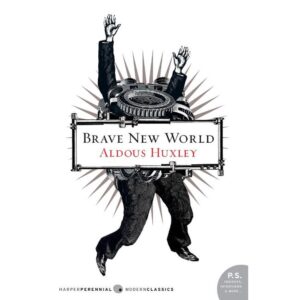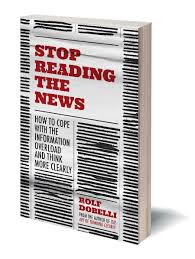Mixing singular and plural is generally a no-no.
Suppose I write, “The senator were having trouble getting re-elected after he started wearing his toupee upsidedown.” Even if you are not a grammar hound or a hairstylist, you are probably cringing. If the subject is singular, the verb must be too. If the subject is plural, so must be the verb. And no fair changing midsentence!
Yet in one situation, this is changing. It has become more acceptable to write sentences in the form: “. . . a person . . . they . . .” or “ . . . everyone . . . their . . .” This is an effort to get around “he” or “he and she” language which can be awkward or problematic. Switching from singular to plural nouns can solve many difficulties. For example:
Apparently, somebody at the golf course thought their putter would float.
This is so much better than:
Apparently, somebody at the golf course thought his or her putter would float.
 Unfortunately, the “singular they” has become so common that it is often used when it is just not necessary. Consider:
Unfortunately, the “singular they” has become so common that it is often used when it is just not necessary. Consider:
Everyone must decide for themselves if kangaroos should be allowed to run for office.
Obviously, we don’t want everyone to decide for himself or herself! That’s as awkward as an elephant on stilts. But there is an alternative. Changing the singular/plural mix to pure plural is the way to go:
People must decide for themselves if kangaroos should be allowed to run for office.
By making everything plural we have the best of both possible worlds: it’s graceful and includes everyone, even kangaroos.
—
photo: As-Dew, Pixabay

 Phase one is acquisition editing. An editor’s role here is to sign up authors to provide articles, blogs, books, or other written material. This is likely the first gatekeeper a writer encounters. Sometimes editors solicit pieces from writers they know, and sometimes writers come to editors with ideas. This phase has been jokingly (derisively?) referred to as “belly editing” for the legendary lunch meetings between editors and authors.
Phase one is acquisition editing. An editor’s role here is to sign up authors to provide articles, blogs, books, or other written material. This is likely the first gatekeeper a writer encounters. Sometimes editors solicit pieces from writers they know, and sometimes writers come to editors with ideas. This phase has been jokingly (derisively?) referred to as “belly editing” for the legendary lunch meetings between editors and authors.  The final phase is copyediting which deals with grammar, spelling, punctuation, house style, and format. Fact checking may arise here or perhaps at the line editing stage. Sometimes line editing and copyediting will be done simultaneously by a single person, collapsing these last two phases into one. After each stage authors are normally given opportunity to review the editing, respond to questions and suggestions, and to make further revisions.
The final phase is copyediting which deals with grammar, spelling, punctuation, house style, and format. Fact checking may arise here or perhaps at the line editing stage. Sometimes line editing and copyediting will be done simultaneously by a single person, collapsing these last two phases into one. After each stage authors are normally given opportunity to review the editing, respond to questions and suggestions, and to make further revisions. Bryan Stevenson’s
Bryan Stevenson’s 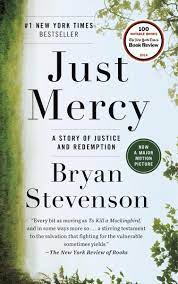

 Early on a priest says he can make sense of it (as God’s judgment) though at the end his theology fails when he sees a small child die after prolonged suffering. A conman makes sense of it by taking advantage of the hardships of others only to revert to depression when the plague lifts. A writer plows ahead with his novel, day by day and month by month, yet never gets beyond the first sentence. A doctor seeks meaning by doggedly helping others even when his efforts often have little effect.
Early on a priest says he can make sense of it (as God’s judgment) though at the end his theology fails when he sees a small child die after prolonged suffering. A conman makes sense of it by taking advantage of the hardships of others only to revert to depression when the plague lifts. A writer plows ahead with his novel, day by day and month by month, yet never gets beyond the first sentence. A doctor seeks meaning by doggedly helping others even when his efforts often have little effect. Buy-In. David Logan, professor at the University of Southern California’s Marshall School of Business notes: “Asking for someone’s ‘buy-in’ says, ‘I have an idea. I didn’t involve you because I didn’t value you enough to discuss it with you. I want you to embrace it as if you were in on it from the beginning, because that would make me feel really good.’”
Buy-In. David Logan, professor at the University of Southern California’s Marshall School of Business notes: “Asking for someone’s ‘buy-in’ says, ‘I have an idea. I didn’t involve you because I didn’t value you enough to discuss it with you. I want you to embrace it as if you were in on it from the beginning, because that would make me feel really good.’” It was a vaccine my grieving mother prayed for desperately, especially because her three other children, including me, were still vulnerable to the terrifying disease. Every year thousands of children across the United States were struck with it, peaking the year my sister died with over 57,000 cases, of whom 3,145 died.
It was a vaccine my grieving mother prayed for desperately, especially because her three other children, including me, were still vulnerable to the terrifying disease. Every year thousands of children across the United States were struck with it, peaking the year my sister died with over 57,000 cases, of whom 3,145 died.
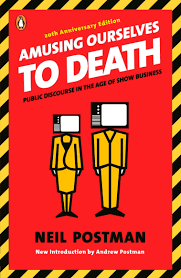
 In the introduction for the twentieth-anniversary edition of book, Postman’s son points out that though we are not dominated by network television anymore, the underlying issues of our entertainment-saturated culture remain the same. Has media improved our democracy? Has it made our leaders more accountable? Are we better citizens or are we better consumers? Have our schools improved as a result?
In the introduction for the twentieth-anniversary edition of book, Postman’s son points out that though we are not dominated by network television anymore, the underlying issues of our entertainment-saturated culture remain the same. Has media improved our democracy? Has it made our leaders more accountable? Are we better citizens or are we better consumers? Have our schools improved as a result?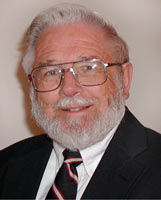
 A colleague, Jim Hoover, often said, “An editor is the author’s advocate to the reader—and the reader’s advocate to the author.” The job of editors is not to shape manuscripts the way they would write them. Rather when alerting authors to potential problems, editors aim to show authors what questions people might raise the first time they read the text. That is just virtually impossible for authors to do who are overly familiar with what they’ve written. “Isn’t it obvious?” No. Not always.
A colleague, Jim Hoover, often said, “An editor is the author’s advocate to the reader—and the reader’s advocate to the author.” The job of editors is not to shape manuscripts the way they would write them. Rather when alerting authors to potential problems, editors aim to show authors what questions people might raise the first time they read the text. That is just virtually impossible for authors to do who are overly familiar with what they’ve written. “Isn’t it obvious?” No. Not always.
